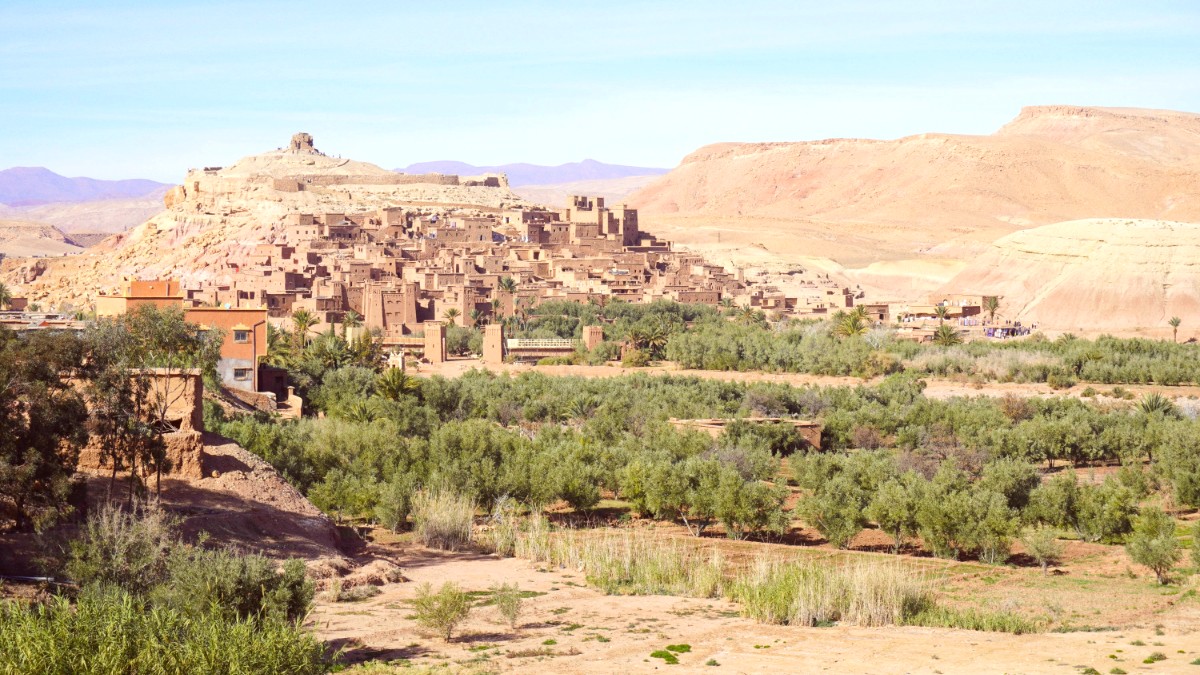
Morocco
Ait Ben Haddou holds UNESCO World Heritage site status. This status signals a high level of protection for its historical and architectural integrity. Conservation efforts focus on maintaining the ksar's unique mud-brick structures and managing erosion. Support these efforts by staying on marked paths and not disturbing the structures.
Waste management poses a challenge in many rural Moroccan areas. Recycling facilities face limitations or do not exist. Minimize the amount of trash you generate. Avoid plastic bags, use a Reusable shopping bag, and bring a Reusable water bottle. Dispose of your waste properly in designated bins. If you cannot find a bin, carry your trash with you until responsible disposal is possible in a larger town.
Consider ways to lessen your ecological footprint.
Air travel contributes significantly to carbon emissions. Consider purchasing carbon offsets for your flights to lessen your environmental footprint. Many airlines and third-party organizations offer this option.
Search for guesthouses and tour operators that explicitly promote sustainable practices. This includes using solar water heating, sourcing food locally, implementing waste reduction, engaging in water conservation, and supporting local employment.
Support local artisans and residents who maintain traditional practices within the ksar. Their livelihood often comes from tourism.
Minimize waste with reusable products.Minimize disposable items. Consider buying reusable products from companies like Package Free Shop to lessen waste.
Support conservation efforts.Your choices make a difference. Opt for environmentally conscious accommodations and tours. Support conservation efforts like those at The Rainforest Site.
Nurture meaningful interactions by appreciating local ways.
The preservation of the Ait Ben Haddou ksar represents a major ongoing effort, backed by its UNESCO status. Your visit supports these initiatives. Support local artisans and residents who uphold traditional practices within the ksar. Their livelihood frequently comes from tourism.
Learn Basic Phrases: Attempting basic Arabic or French greetings shows appreciation. Dress Modestly: As outlined in the Practical Information section, dress modestly. Bargain Respectfully: Bargaining in souks is part of the culture; do so politely and with a smile. Avoid public displays of affection.
Consent matters: Always seek consent before photographing individuals, especially for close-up shots. Some people may prefer not to be photographed for religious or personal reasons. Children: Do not photograph children without explicit parental consent. Respect Privacy: Do not photograph people in private spaces or sensitive situations.
If you encounter a mosque (rarely open to non-Muslims in Morocco, except specific historical ones), remove your shoes and dress very modestly (headscarf for women) if allowed inside. The mosque in Ait Ben Haddou ksar mainly serves worshippers.
Prioritize consent over capturing every moment. Be aware of your surroundings and the local context when using your camera.
Recognize private spaces and moments that should not be photographed. Public areas also benefit from discrete camera use.
Ensure your visit directly benefits the local community.
Support local guesthouses and family-run businesses directly. Hire local, official guides directly. This delivers direct income and genuine insights.
Purchase crafts directly from artisans in the ksar or from reputable local shops. This approach helps artists receive fair prices for their work, bypassing intermediaries. Bargain fairly.
Eat at local restaurants and cafes. Buy souvenirs and goods from small, independent local shops rather than large chains. Use local transport options like grand taxis. These choices directly place funds into the local economy.
Purchases from small, independent businesses directly contribute to the local economy.
Engage in respectful bargaining that acknowledges the artisan's effort and livelihood.
Charitable giving channeled through established local organizations has a greater, lasting positive influence.